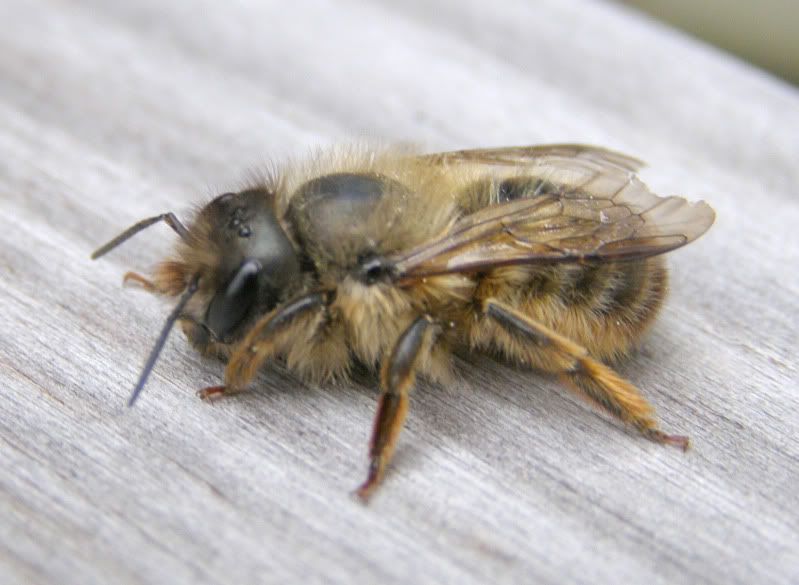When one thinks of pollinators so frequently we are compelled to go to the Honey Bee, Apis mellifera. But the problem here is they're too social! Hives remain at a constant strength and population of 20,000 to 80,000 bees year round. This is great to get some pollination but ideally you'll get better pollination with a variety of bees that are different sizes. All it takes is something like CCD and suddenly our prized source of pollination goes kaput.
Bumblebees are another wonderful choice. The worker size varies over the time of year and life of a hive. But the problem here is their hives are annual. Meaning every winter they all die off except for new queens that have to over winter and start new hives next year. They just don't (A) live that long, and (B) store enough honey to make it thorough the winter. While they are a great pollinator, they just don't have the numbers during the spring months and on a bad year can be scarce even in early Summer. Knox does sell a "Humble Bumble Home" for them but unfortunately I've put one out for the past two years without success. (If you are in a southern state though where it remains warm you may have better luck though.)
The Answer is quite simply The Mason Bee!

These are an ideal pollinator. Though solitary they like to nest around one another. Simply putting out some tubes (like those sold at KnoxCellar.com) in sunny spot under the eve of a house and usually a few will show up. Their normal time of activity is the spring, about when blueberries and fruit trees start to bloom. These bees are more focused towards pollen which they store for the next generation. Unlike other bees that go more for the nectar.


Best of all, Mason Bees are virtually sting-less. They do have a stinger of course but they lack the hive mind to use it. They're solitary females living nesting in a community with a safety in numbers strategy. There are no guard bees, no caste system beyond that of gender, and I've personally handled them.
Because they nest in tubes their populations can be monitored and protected for next year's generation. They do need some care as far as wintering goes though but it's simple enough. I haven't mastered that yet so I'll point you towards this book which I'm reading.
Pollination with Mason Bees: A Gardener and Naturalists' Guide to Managing Mason Bees for Fruit Production
I like the information in it but the images are pretty bad. Most of them are hand drawn and surely could have been better.